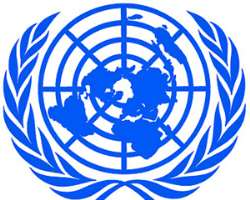SECURITY COUNCIL COMMITTEE CONCERNING LIBYA ISSUES SECOND IMPLEMENTATION ASSISTANCE NOTICE ON ARMS EMBARGO

NEW YORK, October 17, 2012/African Press Organization (APO)/ -- On 9 October 2012, the Security Council Committee established pursuant to resolution 1970 (2011) concerning Libya issued the following implementation assistance notice:
Implementation Assistance Notice #3
This note contains information aimed at assisting Member States in the implementation of the arms embargo on Libya and focuses particularly on the reporting of detections of violations of the embargo to the Committee. The arms embargo covers arms and related materiel both to and from Libya, with provisions for exemptions as described in the relevant United Nations Security Council resolutions.
Since the imposition of the arms embargo by the Council on 26 February 2011, several States have detected violations of this mandatory measure on their territory and have initiated criminal investigations to determine whether any domestic laws have been broken and, if so, to take action to ensure full compliance with the Council's resolutions (see final report of the Panel of Experts — S/2012/163).
The United Nations monitors reported sanctions violations and determines appropriate actions to take in response. The principal body mandated to monitor implementation of measures imposed in Security Council resolutions 1970 (2011) and 1973 (2011), and modified in resolution 2009 (2011), and to examine and take appropriate action on information regarding alleged violations or non-compliance, is the Security Council's Sanctions Committee established pursuant to resolution 1970 (2011). The Panel of Experts assists the Committee in carrying out its mandate through gathering, examining and analyzing information from Member States and other interested parties regarding the implementation of the sanctions and, in particular, incidents of non-compliance (Security Council resolution 2040 (2012), paragraph 10b). The Panel comprises impartial, independent individuals with relevant technical expertise.
1. Reporting Violations or Attempted Violations of the Arms Embargo
In paragraph 11 of resolution 2040 (2012), the Security Council “urgesall States, relevant United Nations bodies, including UNSMIL [United Nations Support Mission in Libya], and other interested parties, to cooperate fully with the Committee and the Panel, in particular by supplying any information at their disposal on the implementation of the measures decided in resolutions 1970 (2011) and 1973 (2011), and modified in resolution 2009 (2011), in particular incidents of non-compliance”.
To this end, Member States should report any discovery of sanctions violations committed within their territory, or outside, to the Committee as soon as possible. Sanctions violations may occur when activities or transactions proscribed by Security Council resolutions are undertaken or attempts are made to engage in proscribed transactions, whether or not the transaction has been completed.
In the case of a violation of the arms embargo, these reports, which may be submitted confidentially, should describe the circumstances of the incident, specifically: date, location, means of transport of cargo, details of the carrier, the perpetrators of the violation, the intended end-user, the exact type and quantity of materiel, and photographs where possible. In cases where the cargo has been intercepted, the report should also describe the actions that the State has taken to seize and dispose of any contraband items.
2. Examination and Action Taken by the Committee Pursuant to Reporting of Violations by States; Assistance Provided by the Panel of Experts
After learning of a sanctions violation the Committee, and/or its Panel of Experts which provides assistance in compiling and analyzing the facts and circumstances of sanctions violations, may write letters to all States involved in the incident to request additional information. For example, letters may be addressed to a State whose nationals or flag vessels have been found transferring proscribed items in violation of United Nations sanctions. These letters are strictly intended to determine or clarify the facts of the case and to assist the Committee in the formulation of recommendations for all Member States. All States are asked to respond promptly to requests from the Committee or its Panel of Experts for information.
Following the submission of their report, States are asked to invite the Panel to visit and inspect any items that may have been seized by their national authorities. Such visits should be made only with consent of the concerned state.
